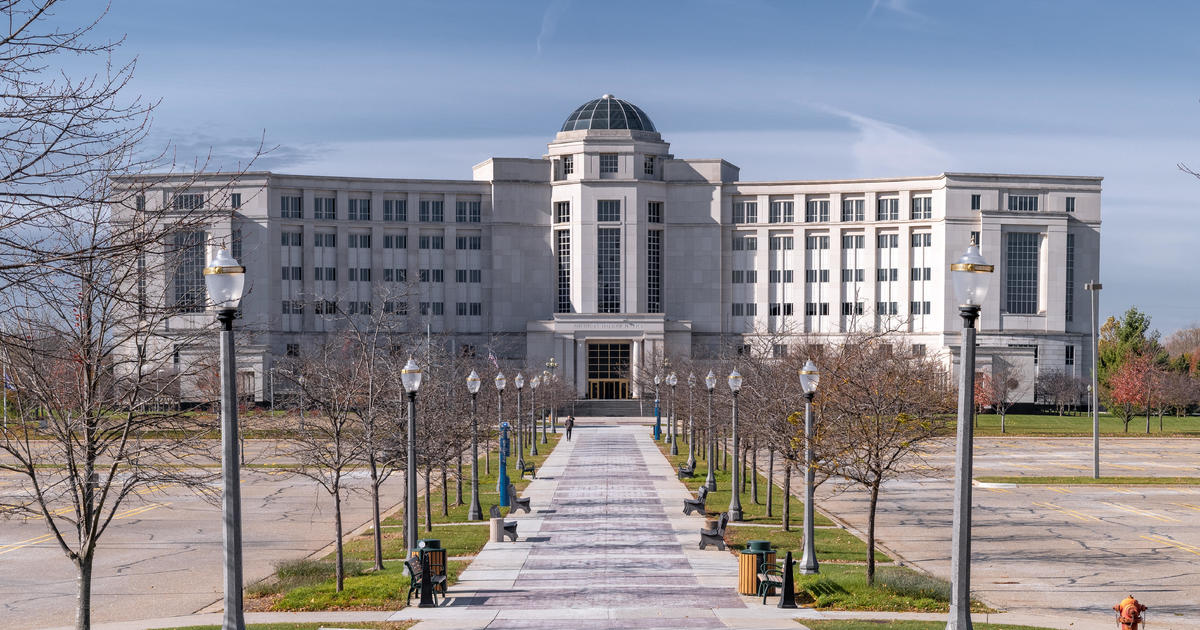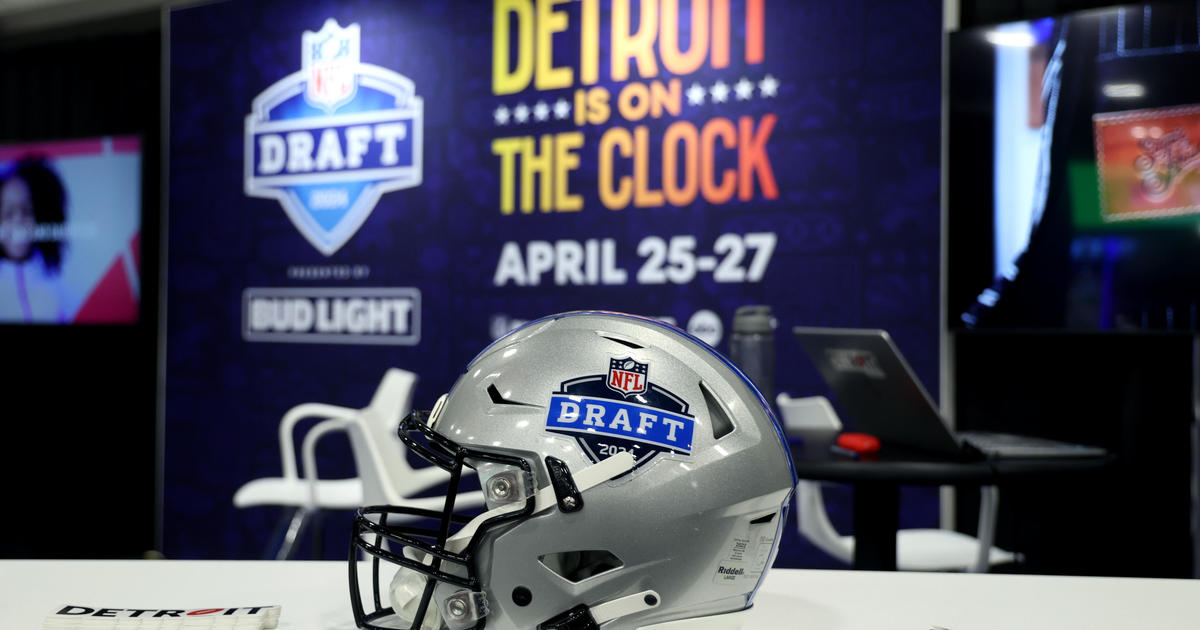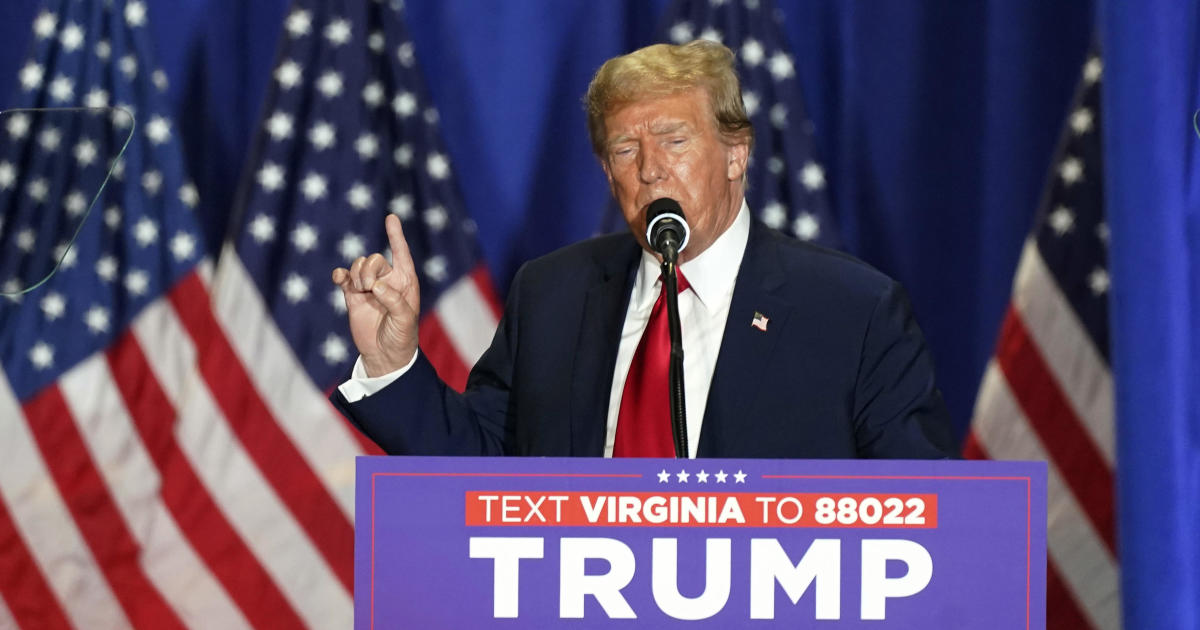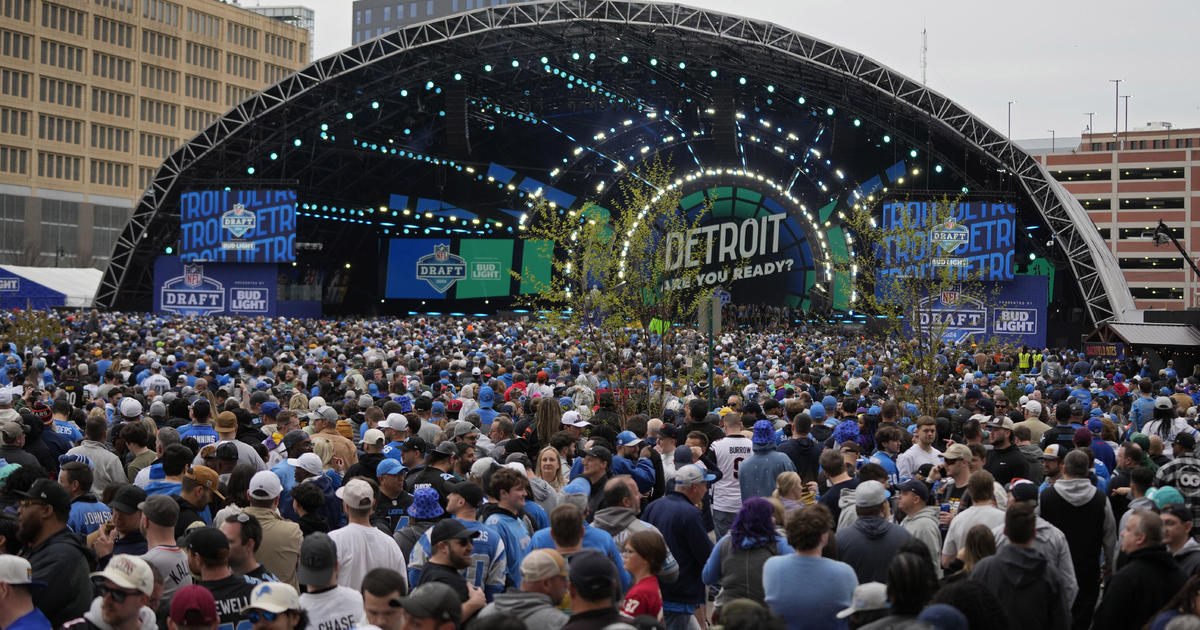Stimulus Check Latest: Will You Receive A Third Payment Later This Year?
(CBS Detroit) -- Is it too soon to talk about a third stimulus check? The second payment is finding its way into bank accounts, as part of a stimulus package many experts find inadequate. A Senate runoff election that will help determine the fate of President-elect Joe Biden's first term is playing out in Georgia. And COVID-19 remains largely unchecked, with the country moving out of the holiday season and into the dead of winter. All of these events have implications for the future economy.
So, no, it's not too soon at all to begin chatter about a potential third stimulus check.
The first round of stimulus payments went out in the spring to millions of Americans. At that time, the economy was rapidly contracting under the weight of a massive slowdown brought on by the COVID-19 pandemic. Stores and restaurants in many parts of the country were ordered to stay closed. Unemployment soared, with widespread uncertainty about the virus and how it would affect people and businesses.
Since then, the virus has become better understood, and two seemingly effective vaccines are in the early stages of distribution. The economy has recovered to a degree as well. Many of the stores and restaurants initially ordered to close have long since reopened with limitations. But unemployment remains almost double its pre-pandemic levels. And millions of Americans continue to struggle with paying rent and other bills and buying food.
A much-discussed second stimulus package was passed by Congress and signed by President Trump over the holidays. The $900 billion in economic relief includes extensions of Pandemic Unemployment Assistance (PUA) and the Pandemic Emergency Unemployment Compensation (PEUC). PUA aids unemployed freelance and gig workers. PEUC adds 13 weeks of unemployment benefits onto however many weeks a given state provides (generally around 26 weeks). The second package also includes another round of stimulus payments (for $600, rather than $1,200). Those have already started arriving in people's bank accounts and will continue to go out through January 15.
Many economists maintain that this stimulus package won't be enough to prop up a fragile economy or doesn't put the money in the hands of the right people. The effects will become better understood in the coming weeks and months. So will the need for a possible third round of stimulus.
>>READ: Stimulus Package Update: When Will The Checks Start Arriving?
It's already clear that the House and President-elect Joe Biden support putting more money into the hands of Americans. Back in May, the House passed the $3 trillion HEROES Act, which the Senate didn't vote on. House Speaker Nancy Pelosi and Treasury Secretary Steven Mnuchin were negotiating a stimulus package in the neighborhood of $2 trillion in the runup to the election. And the House recently passed a bill to increase the amount of the second stimulus payment from $600 to $2,000, but the Senate did not take up the measure.
Biden referred to the latest stimulus as a "down payment" for dealing with the pandemic. In those same comments to reporters, the President-elect highlighted what he plans to request from Congress in terms of additional COVID relief once he's President. The list includes more money for testing and vaccinations, aid to cities and states and another round to stimulus checks. The actual amount of a potential third payment has yet to be determined.
So are Americans going to receive a third stimulus check? It may very well depend on the January 5 runoff elections in Georgia, where control of the Senate hangs in the balance. Republicans currently hold 50 seats to the Democrats' 48 (actually 46, but the two independents tend to vote with the Democrats). In the November election, none of the candidates received the 50 percent of the votes required to win in the state. That forced a runoff election, with incumbent Republican David Perdue facing Democrat Jon Ossoff, and Republican Kelly Loeffler facing Democrat Reverend Raphael Warnock. Polls show two tight races.
If Ossoff and Warnock win, the Senate would be split 50-50. Vice President-elect Kamala Harris would cast the deciding vote for all ties. An effective Democratic majority increases the likelihood of another round of stimulus. Democrats already support giving more money to Americans. And two more votes in the Senate, plus the tiebreaker, would give them enough to overcome the fiscally conservative Republicans who effectively blocked a second stimulus package for much of 2020.
A third stimulus check is still far from assured. Voting in the in Georgia ends Tuesday evening, and the next president doesn't take office for more than two weeks. Never mind that centrist Democrats could, in theory, vote against another round to stimulus, should the political winds favor it. But a Senate majority, to go along with the House majority, would help Biden deliver on his legislative priorities.
The country remains at the mercy of the coronavirus pandemic. Domestic cases are approaching 21 million, while deaths recently surpassed 350,000. Infection rates are skyrocketing in many parts of the country.
Two vaccines that are each about 95 percent effective after two doses have been approved for use. But they're not reaching Americans as promised. The Trump administration pledged to vaccinate 20 million people by the end of the December. Of the 14 million doses that shipped, only about three million people received them.
Even if the pace of vaccination picks up, it will be months before the country reaches 70 percent herd immunity. Dr. Anthony Fauci, director of the National Institute of Allergy and Infectious Diseases, recently suggested that the country has the capacity to vaccinate one million people per day. At that rate, it would take another eight months or so for 70 percent of the population to receive one dose (not the required two doses.)
The economy can't return to some semblance of normal until consumers feel comfortable out in public. And that day will likely be long after the second stimulus package -- and possibly a third -- runs its course.



